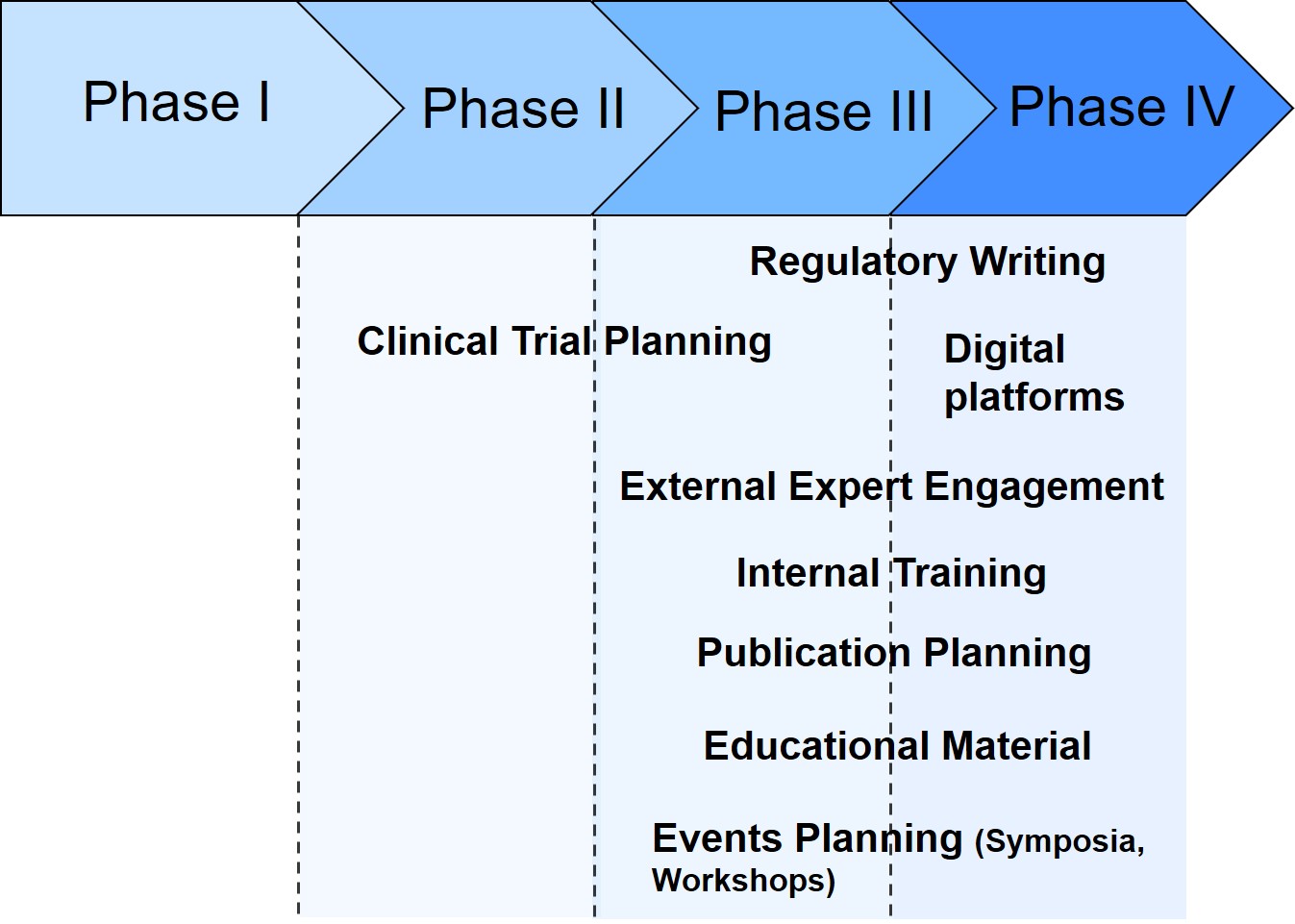by Helena Mello If you are a recurrent reader of this blog you probably have heard of Medical Communications (Med Comm). We cover this topic frequently not just because we think Med Comm can be a great career for those with a science background, but also because it is a rapidly growing field in the healthcare industry. With that in mind, the Rutgers iJOBS program organized a site visit to Med Comm giant McCann Health. The event was an opportunity for students and postdocs to learn more about the company’s services and career development plans. In today’s post, I will focus on the former. If you are interested in the latter, you can read about it here and here. After a brief overview of the Industry and the Drug Development Process, we were quickly led to what was, in my opinion, the most interesting part of the event: The Role of the Medical Communication Agency. In a previous post, I explained in detail that most of Med Comm agencies’ clients are pharma companies and that the agencies are, for the most part, in charge of the strategy for their clients’ product launches. However, there is a huge portion of the strategy ithat does not deal with the product directly. Importantly, it should not be mixed up with advertising. In fact, Med Comm agencies usually get hired when Phase III of a clinical trial begins, i.e. when efficacy, dosing, and further safety tests are being conducted, whereas advertising agencies get hired after the product has received approval from the regulatory agency.  The services typically offered by Medical Communication agencies during the different phases of a clinical trial. In a typical project, the team at McCann works closely with different members of the clients’ project team. Some of the ones they interact the most are medical affairs, clinical development, statistics, and safety teams. The goal is to create a path for successful product launch - and that path starts very early, before the product can even be mentioned. Therefore, the two most important questions are:
The services typically offered by Medical Communication agencies during the different phases of a clinical trial. In a typical project, the team at McCann works closely with different members of the clients’ project team. Some of the ones they interact the most are medical affairs, clinical development, statistics, and safety teams. The goal is to create a path for successful product launch - and that path starts very early, before the product can even be mentioned. Therefore, the two most important questions are:
- Who does the client need to communicate with?
- What are the communication channels available (for the client to connect with their audience)?
Many of these channels can be well exploited within the pre-launch phase, such as engagement with health professionals. For example, the client may request that McCann builds an External Expert Engagement Program. That means that McCann will look for experts in the field, produce material about the disease state and educate these individuals. In this stage, the educational material cannot discuss the product being developed. In addition to engaging with experts in the field, McCann also works with the customer to create symposia, e-learning, and internal training material (e.g. for Medical Science Liaisons and sales force). Materials that target non-medical audiences are extremely important to build trust and credibility since patients and family-led organizations have been more involved in the drug development process. Other important tasks are publication planning and delivery which is assisting authors with manuscript writing and submission. In addition, when preparing for a product launch, the client may request the development of key concepts, brand vocabulary, and product descriptors. For example, if the product will have a website or another dedicated platform (perhaps an app or booklet), it is important to build a lexicon that is both scientifically accurate and understandable by patients and their families, doctors and other health professionals. In summary, a career in Medical Communication will allow you to translate scientific findings into credible information and present it to a variety of audiences. If you can see yourself working in a Med Comm agency such as McCann, make sure you expose yourself to many writing and editing opportunities - for example by joining our blog! Special thanks to the great team at McCann that welcomed the Rutgers iJOBS students: Medical Writing and Customer Services team: Gary Burd, PhD, Myka Ababon, PhD, Andreea Radulescu, PhD, Donna Casparro, and Claudia Piano. HR team: Anuksha Sumar and Phillip Hill. This article was edited by Erika Davidoff and Tomas Kasza.